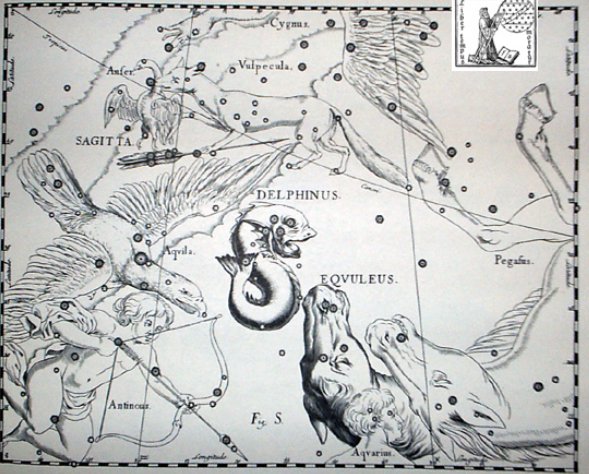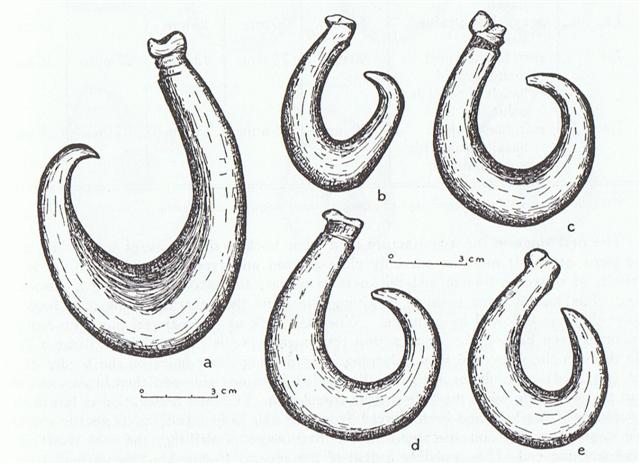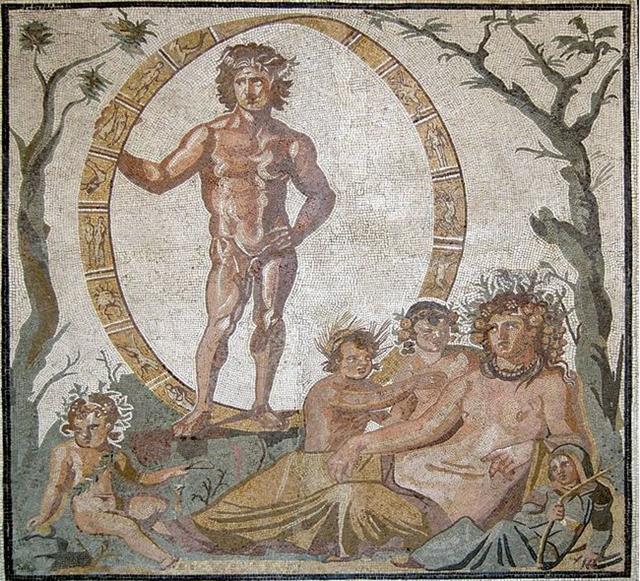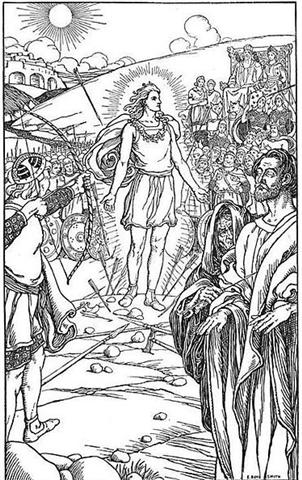There
is one (and only one) more place with a
fish-hook in the G text. Here we can read
that when the Sun at the time of the First
Point of Aries reached the Dolphin
constellation in 'December 31 then
Sirius would have been at the Full Moon in
'June 30:

|
NOVEMBER 19 |
20
(324) |
21 |
22 |
23 |
24
(*248) |
 |
 |
 |
 |
 |
 |
|
Gb1-14 |
Gb1-15 |
Gb1-16 |
Gb1-17 |
Gb1-18 |
Gb1-19 (248) |
|
GREDI
= α Capricorni
(307.2), σ Capricorni
(307.5),
ALSHAT
= ν Capricorni
(307.9) |
Al Sa’d al Dhabih-20 /
Ox /
Herd Boy-9 |
OKUL = π
Capricorni
(309.6),
BOS = ρ
Capricorni
(309.9) |
ο
Capricorni (310.2), θ Cephei (310.5) |
ROTTEN MELON =
ε Delphini,
φ Pavonis (311.2), η Delphini (311.4), ζ
Delphini, ρ Pavonis (311.7) |
ROTANEV = β
Delphini,
ι Delphini (312.3), τ Capricorni (312.6), κ
Delphini (312.7),
SVALOCIN =
α
Delphini,
υ Capricorni, υ Pavonis (312.8) |
|
DABIH = β
Capricorni
(308.0), κ Sagittarii
(308.1),
SADIR = γ Cygni
(308.4),
PEACOCK
= α Pavonis
(308.7) |
|
January 22 |
23
(*308) |
24 |
25 |
26 |
27
(392) |
|
°January 18 |
19
(*304) |
20 |
21 |
22 |
23
(388) |
|
'December 26 |
27 |
28 |
29 |
30
(364) |
31
(*285) |
|
NAKSHATRA DATES: |
|
MAY
20 (*60) |
21 |
22 |
23 |
24
(*64) |
25 |
|
AL TARF
= β Cancri
(124.3) |
χ Cancri (125.2),
BRIGHT FIRE = λ
Cancri
(125.4) |
AVIOR = ε
Carinae
(126.4), φ
Cancri (126.8) |
ο Ursa Majoris
(127.4) |
Pushya-8 |
Āshleshā-9 /
Willow-24 |
|
υ Cancri (128.1),
θ CANCRI
(128.2) |
π¹ Ursa Majoris,
δ HYDRAE (129.6),
AL
MINHAR AL
SHUJĀ = σ Hydrae,
MUSEIDA
= π² Ursae Majoris
(129.9) |
|
July
23 (204) |
24 |
25 |
26
(*127) |
27 |
28 |
|
°July 19 (200) |
20 |
21 |
22
(*123) |
23 |
24 |
|
'June 26 (177) |
27 |
28 |
29
(*100) |
SIRIUS |
'July 1 |
This supports my statement that the
creator of the G text may have used a fish-hook to indicate the
presence of Sirius. When the Full Moon had reached 'July
1 it would have been a position corresponding to
°January 23 (1-23) according to the Gregorian Sun
calendar. 388 - 23 = 365 = 364 + 1.

Metoro tended to say hakaturou
(to curse) as his explanation of this type of
glyph.
|
Turou
Mgv.: a great sacriledge or
blasphemy. Ta.: turou, a curse, to
blaspheme. Churchill. |
| Kino
1. Bad; kikino, very
bad, cursed; kona kino, dangerous
place. 2. blemish (on body). Kinoga,
badness, evil, wickedness; penis.
Kinokino, badly made, crude: ahu
kinokino, badly made ahu, with coarse,
ill-fitting stones. Vanaga.
1. Bad, wrong. T Pau.:
kiro, bad, miserable. Mgv.: kino,
to sin, to do evil. Mq.: ino, bad,
abominable, indecent. Ta.: ino,
iino, bad, evil; kinoga (kino
1) sin; Mgv.: kinoga, sin, vice. 2. A
skin eruption, verruga, blotched skin,
cracked feet T. Churchill. |
The tama (child) dream soul
station was characterized as evil, as 'an
evil fish (he ika
kino) with a very long nose (he ihu roroa)'.
|
Ihu
1. Nose; ihu more,
snub nose, snub-nosed person. 2.
Ihuihu cape, reef; ihuihu -
many reefs, dangerous for boats. 3.
Ihu moko, to die out (a family of
which remains only one male without
sons); koro hakamao te mate o te
mahigo, he-toe e-tahi tagata nó, ina
aana hakaara, koîa te me'e e-kî-nei:
ku-moko-á te ihu o te mahigo, when
the members of family have died and
there remains only one man who has no
offspring, we say: ku-moko-á te ihu o
te mahigo. To disappear (of a
tradition, a custom), me'e ihu moko o
te tagata o te kaiga nei, he êi, the
êi is a custom no longer in use
among the people of this island. 4.
Eldest child; first-born; term used
alone or in conjunction with atariki.
Vanaga.
1. Nose, snout, cape T
(iju G). Po ihuihu, prow
of a canoe. P Pau.: ihu, nose.
Mgv.: ihu, nose; mataihu,
cape, promontory. Mq., Ta.: ihu,
nose, beak, bowsprit. Ihupagaha,
ihupiro, to rap on the nose, to
snuffle. 2. Mgv.: One who dives deep.
Ta.: ihu, to dive. Churchill.
Sa.: isu, nose,
snout, bill. Fu., Fakaafo, Aniwa,
Manahiki: isu, the nose. Nuguria;
kaisu, id. Fotuna: eisu,
id. Moiki: ishu, id. To., Niuē,
Uvea, Ma., Ta., Ha., Mq., Mgv., Pau.,
Rapanui, Tongareva, Nukuoro:
ihu,
id. Rarotonga: putaiu,
id. Vaté: tus,
id. Viti: uthu,
nose. Rotumā: isu,
id. ... usu
and ngusu
... serve as transition forms,
usu
pointing to isu
the nose in Polynesia and
ngusu
to ngutu
the mouth, which is very near, nearer
yet when we bear in mind that
ngutu
the mouth is snout as well and that
isu
the nose is snout too ...
Churchill 2. |
|
Roa Long:
haga roa, long bay, wide beach;
ara roa râkei, wide, neat path.
Roaroa, long, tall, far, distant:
tagata roaroa, tall man; kaiga
roaroa, distant land; roaroa
tahaga, middle finger. Vanaga.
Long, large, extent;
roaroa, to grow, height; mea
roaroa, a long while; roaroa
tahaga, middle finger; roaroa ke,
infinite (time and space); roroa,
far, distant, thin, to grow tall;
tagata roroa, giant; roroa ke,
immense; arero roroa, to rapport,
to tell; vanaga roroa, to
chatter, babbler; vare roroa,
driveller; hakaroa, to lengthen,
to defer; hakaroaroa, to
lengthen, to develop; hakaroroa |
| Ika
1. Fish. 2. In some
cases, animal in general: îka ariga
koreh[v?]a, animal with the
face of a koreva fish (name given
to horses when they arrived on the
island, because of the resemblance of
their heads with that of a koreva).
3. Victim (wounded or killed), enemy who
must be killed, person cursed by a
timo and destined to die; îka
reirei, vanquished enemy, who is
kicked (rei). 4. Corpse of man
fallen in war. Vanaga.
1. Fish, animal;
ika rere, flying fish; ivi ika,
fishbone; mata ika, pearl. P
Pau., Mgv., Mq.: ika, fish. Ta.:
ia, id. 2. Prey, victim,
sacrifice; ika ke avai mo, abuse;
hakarere ki te ika, to avenge. T
Mgv.: ikaiara, to quarrel;
ikatamamea, to be angry because
another has handled one's property. Mq.:
ika, enemy, what causes horror.
Ma.: ika, the first person killed
in a fight. Mangaia: ika, a
victim for sacrifice. 3? matamata ika,
snow. Ikahi, to fish with a line,
to angle. Mq.: ikahi, id.
Ikakato, to go fishing. Ikakohau,
to fish with a line, to angle.
Ikapotu, cape, end of a voyage,
destination; ikapotu hakarere, to
abut, to adjoin; topa te ikapotu,
id.; tehe oho te ikapotu, id.;
mei nei tehe i oho mai ai inei te
ikapotu, as far as, to. Ikapuhi,
to fish with a torch. Mq.: ikapuhi,
id. Churchill. |
|
...
I'a is the general name for fishes,'
Pratt notes in his Samoan dictionary,
'except the bonito and shellfish
(mollusca and crustacea).'
We may
forgive the inaccuracy of the biology in
our gratitude for the former note. The
bonito is not a fish, the bonito is a
gentleman, and not for worlds would
Samoa offend against his state. The
Samoan in his 'upu fa'aaloalo has
his own Basakrama, the language of
courtesy to be used to them of high
degree, to chiefs and bonitos. One does
not say that he goes to the towns which
are favorably situated for the bonito
fishery; he says rather that (funa'i)
he goes into seclusion, he withdraws
himself. He finds that the fleet which
is to chase the bonito has an honourable
name for this use, that the chief fisher
has a name that he never uses ashore. He
will not in so many words say that he is
going to fish for bonito, he says that
he is going out paddling in the courtesy
language (alo); he even avoids
all chance of offending this gentleman
of his seas by saying, instead of the
blunt vulgarity of the word fishing,
rather that he is headed in some other
direction (fa'asanga'ese).
He does
not paddle with the common word but with
that (pale) which he uses in
compliment to his chief's canoe. He will
not so much as speak the word which
means canoe; he calls it by another word
(tafānga),
which may mean the turning away to one
side.
In
this unmentioned canoe he may not carry
water by its common name, he must call
it (mālū)
the cool stuff. He will not mention his
eyes in the canoe; he calls his visor (taulauifi)
the shield for his chestnut leaves.
Even the word for large becomes
something else (sumalie)
in this great game. The hook must be
tied with ritual care; it is called (pa)
out of the common name for hook; no
bonito will take a hook which has not
been properly tied; the fastening is
veiled under the name (fanua)
for the land. There are many rules to
observe; their disregard is called (sopoliu)
the stepping over the bilges, from the
most unfortunate thing that the fisher
can do. He may hail the bonito by his
name (atu),
or he may call him affectionately or
coaxingly (pa'umasunu)
old singed-skin.
If
he has the fortune to hook his bonito he
must raise the shout of triumph,
Tu! Tu! Tu e!,
not his whole name but one of its
syllables; he triumphs as over a foe
honorably slain in combat, but he avoids
hurting the feelings of the other
gentlemen of the sea. The first bonito
caught in a new canoe he calls (ola)
life; the first bonito caught in any
season bears a special name (ngatongiā),
of uncertain signification, and he
presents it to his chief. His catch he
reckons by a special notation; to his
numerals he adds the word (tino)
body; he counts them as one-body,
two-body, three-body.
Parts of the gentleman have specific
names of their own; his fins (asa)
and his entrails (fe'afe'a)
are called in terms nowhere else
employed; the tidbit of the belly part,
which the fisher must give to his chief,
is called (ma'alo)
by the honorific title of the chief's
abdomen. And if the rites were not duly
observed, if the hook was not rightly
tied, if the fisher was so incautious as
to mention his eyes, if one of a hundred
faults was committed and the fishing was
in vain, then the fisher acknowledged
his ill success abjectly by saying that
(maloā)
he was conquered. Such is the language
Samoans use to the gentleman of the
seas, and he is not
i'a.
(William
Churchill, The Polynesian Wanderings.) |
Maybe this (fish-)hook could be useful
for reading other rongorongo tablets?
Metoro said
hakaturou at Ab7-39 but ki to moa at
Aa5-18:
|
side a |
side b |
|
350 |
 |
319 |
534 |
 |
129 |
|
Aa5-18 (351) |
Ab7-39 (535) |
|
670 |
664 |
|
1334 = 29 * (20 + 26) |
|
Moa Poultry
(general term); moa to'a,
rooster; moa taga, chicken,
moa rikiriki, chick; moa
tarapiko, old rooster (with much
twisted spurs - tara ); moa
gao verapaka, chicken with bald
neck; moa va'e verevere, with
feathers on its legs; moa pipipipi
with multicoloured spots; moa
garahurahu, colour of dark ashes;
moa tea, white; moa totara,
frizzy; moa tu'a ivi raá, with
bright yellow back. Vanaga.
Fowl; moa toa,
cock; moa uha, hen; moa ohoa,
crowing of cocks; moa manua, wild
fowl; moa herea, tame fowl. P
Pau.: moa, domestic fowl. Mgv.:
moa, cock. Mq.: moa, hen.
Ta.: moa, cock, hen. Churchill.
Mgv.: Aka-moa,
to cook. Mq.: haamoa, id. To.:
moa, dried. Ha.: moa, to dry,
to roast. Mgv.: Moaga, 1. a red
beard. Mq.: moaka, very red. 2. a
fish. Mq.: moana, id. Sa.:
moaga, id. Ha.: moana, a red
fish. Mgv.: Moake, east wind.
Ha.: moae, the northeast
tradewind. Churchill. |
In the text on the Large Santiago
Tablet (H) - which was given to the crew on O'Higgins
at the same time (in 1870) as the Small Santiago Tablet
(G)
- there seems to be a correspondence between the
fishhook and 'noon' (high summer):
 |
 |
 |
 |
 |
 |
|
Ha6-1 |
Ha6-2 (277) |
Ha6-3 |
Ha6-4 |
Ha6-5 |
Ha6-6 |
Ha6-3 resembles Ab7-38
and its position could possibly have defined
'noon':
 |
 |
 |
 |
|
Ab7-36 |
Ab7-37 |
Ab7-38 |
Ab7-39 |
|
o te maitaki |
e tarahoi |
ma te vero ia |
hakaturou |
However, 73 * 8 = 584
could refer to the synodic cycle of
Venus:
|
Synodic cycles |
|
Mercury |
115.88 |
|
Venus |
583.92 |
|
|
|
Mars |
779.96 |
|
Jupiter |
398.88 |
|
Saturn |
378.09 |
|
Uranus |
369.66 |

|
Mercury |
Jupiter |
Venus |
Saturn |
Sun |
Moon |
Mars |
|
1 |
2 |
3 |
4 |
5 |
6 |
7 |
|
8 |
9 |
10 |
11 |
12 |
13 |
14 |
|
15 |
16 |
17 |
18 |
19 |
20 |
21 |
|
22 |
23 |
24 |
25 |
26 |
27 |
28 |
|
Vero
To throw,
to hurl (a lance, a
spear). This word was
also used with the
particle kua
preposed: koía kua
vero i te matá, he
is the one who threw the
obsidian [weapon].
Verovero, to throw,
to hurl repeatedly,
quickly (iterative of
vero). Vanaga.
1.
Arrow, dart, harpoon,
lance, spear, nail, to
lacerate, to transpierce
(veo). P Mgv.:
vero, to dart, to
throw a lance, the tail;
verovero, ray,
beam, tentacle. Mq.:
veó, dart, lance,
harpoon, tail, horn.
Ta.: vero, dart,
lance. 2. To turn over
face down. 3. Ta.:
verovero, to twinkle
like the stars. Ha.:
welowelo, the light
of a firebrand thrown
into the air. 4. Mq.:
veo, tenth month of
the lunar year. Ha.:
welo, a month (about
April). Churchill.
Sa.:
velo, to cast a
spear or dart, to spear.
To.: velo, to
dart. Fu.: velo,
velosi, to lance.
Uvea: velo, to
cast; impulse,
incitement. Niuē:
velo,
to throw a spear or
dart. Ma.:
wero,
to stab, to pierce, to
spear. Ta.:
vero,
to dart or throw a
spear. Mg.:
vero,
to pierce, to lance.
Mgv.: vero,
to lance, to throw a
spear. Mq.:
veo,
to lance, to throw a
spear. Churchill 2. |
WELO, v.
Haw., to float or
stream in the wind;
to flutter or shake
in the wind, s.
the setting of the
sun, or the
appearance of it
floating on the
ocean; welo-welo,
colours or cloth
streaming in the
wind, a tail, as of
a kite, light
streaming from a
brand of fire thrown
into the air in the
dark;
hoku-welo-welo,
a comet, a meteor;
ko-welo, to
drag behind, as the
trail of a garment,
to stream, as a flag
or pennant.
Sam.,
Tong., welo,
to dart, cast a
spear of dart. Tah.,
wero, to
dart, throw a spear;
a storm, tempest,
fig. great rage;
wero-wero, to
twinkle, as the
stars. Marqu.,
weo, a tail.
Mangar., wero,
a lance, spear.
Greek, βαλλω,
εβαλον,
to throw, cast,
hurl, of missiles,
throw out, let fall,
push forward;
βελος,
a missile, a dart;
βελεμνον,
id., βολη,
a throw, a stroke;
βολος,
anything thrown,
missile, javelin, a
cast of the dice.
Sanskr.,
pal,
to go, to move. To
this Benfey refers
the Lat.
pello,
Greek
παλλω,
O. H. Germ.
fallan,
A.-Sax.
feallan.
Liddell and Scott
are silent on these
connections ...
(Fornander)
|
... A vestige of the practice of
putting the king to death at the
end of a year's reign appears to
have survived in the festival
called Macahity, which
used to be celebrated in Hawaii
during the last month of the
year. About a hundred years ago
a Russian voyager described the
custom as follows: 'The taboo
Macahity is not unlike to
our festival of Christmas. It
continues a whole month, during
which the people amuse
themselves with dances, plays,
and sham-fights of every kind.
The king must open this festival
wherever he is. On this occasion
his majesty dresses himself in
his richest cloak and helmet,
and is paddled in a canoe along
the shore, followed sometimes by
many of his subjects. He embarks
early, and must finish his
excursion at sunrise.
The strongest and most expert of
the warriors is chosen to
receive him on his landing. The
warrior watches the canoe along
the beach; and as soon as the
king lands, and has thrown off
his cloak, he darts his spear at
him, from a distance of about
thirty paces, and the king must
either catch the spear in his
hand, or suffer from it: there
is no jesting in the business.
Having caught it, he carries it
under his arm, with the sharp
end downwards, into the temple
or heavoo. On his
entrance, the assembled
multitude begin their
sham-fights, and immediately the
air is obscured by clouds of
spears, made for the occasion
with blunted ends. Hamamea
(the king) has been frequently
advised to abolish this
ridiculous ceremony, in which he
risks his life every year; but
to no effect. His answer always
is, that he is as able to catch
a spear as any one on the island
is to throw it at him. During
the Macahity, all
punishments are remitted
throughout the country; and no
person can leave the place in
which he commences these
holidays, let the affair be ever
so important
...
(Sir
James George Frazer, The
Golden Bough. A Study in Magic
and Religion.)

|







